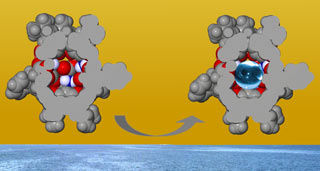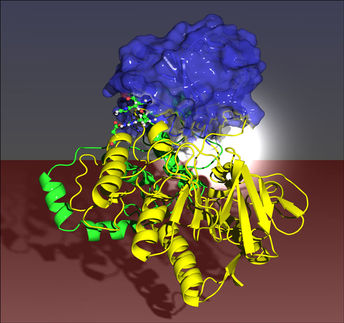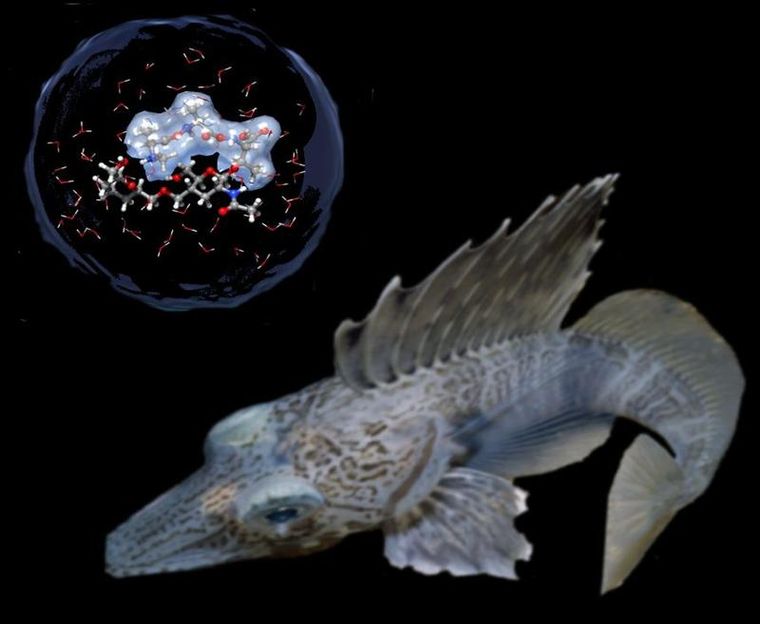Molecular containers to capture the imagination
Polish scientists have made a molecular container that can encapsulate molecules and differentiate between their enantiomers. Agnieszka Szumna and Bogumil Kuberski at the Polish Academy of Sciences, Warsaw, made the container from vase-shaped molecules called resorcinarenes substituted with amino acid molecules. They showed that when two resorcinarene molecules come together, they form a chiral capsule with a non-polar exterior and a polar, amino acid-functionalised interior.

A chiral capsule extracting a molecule from the aqueous phase and encapsulating it
Royal Society of Chemistry
Scientists are interested in molecular containers because their interior can mimic the active sites of natural proteins. Reactions inside molecular containers can also be faster than normal reactions because the effective concentration of reactants is greater. But until now, most molecular containers have had smooth (non-chiral), non-polar interiors that have limited their selectivity and activity.
‘Our capsule can be considered as a kind of molecular reversed micelle,’ says Szumna. ‘It can perform some simple functions: it is able to extract from the water phase and encapsulate biologically relevant polar molecules and differentiate between their enantiomers.’
Szumna says the most challenging problem they are working on is effective asymmetric synthesis within molecular containers. Until now, most of the reactions carried out in molecular containers have not been asymmetric. ‘In our system, promising functional groups protrude the interior; amino acids’ amino groups are known to take part in natural and artificial organocatalytic reactions,’ says Szumna. ‘Although there are many problems to overcome, we hope that the “inversed capsules” will be able to form as reaction vessels as well.’
Original publication: Bogumil Kuberski and Agnieszka Szumna, Chem. Commun., 2009.
Other news from the department science

Get the chemical industry in your inbox
By submitting this form you agree that LUMITOS AG will send you the newsletter(s) selected above by email. Your data will not be passed on to third parties. Your data will be stored and processed in accordance with our data protection regulations. LUMITOS may contact you by email for the purpose of advertising or market and opinion surveys. You can revoke your consent at any time without giving reasons to LUMITOS AG, Ernst-Augustin-Str. 2, 12489 Berlin, Germany or by e-mail at revoke@lumitos.com with effect for the future. In addition, each email contains a link to unsubscribe from the corresponding newsletter.



























































